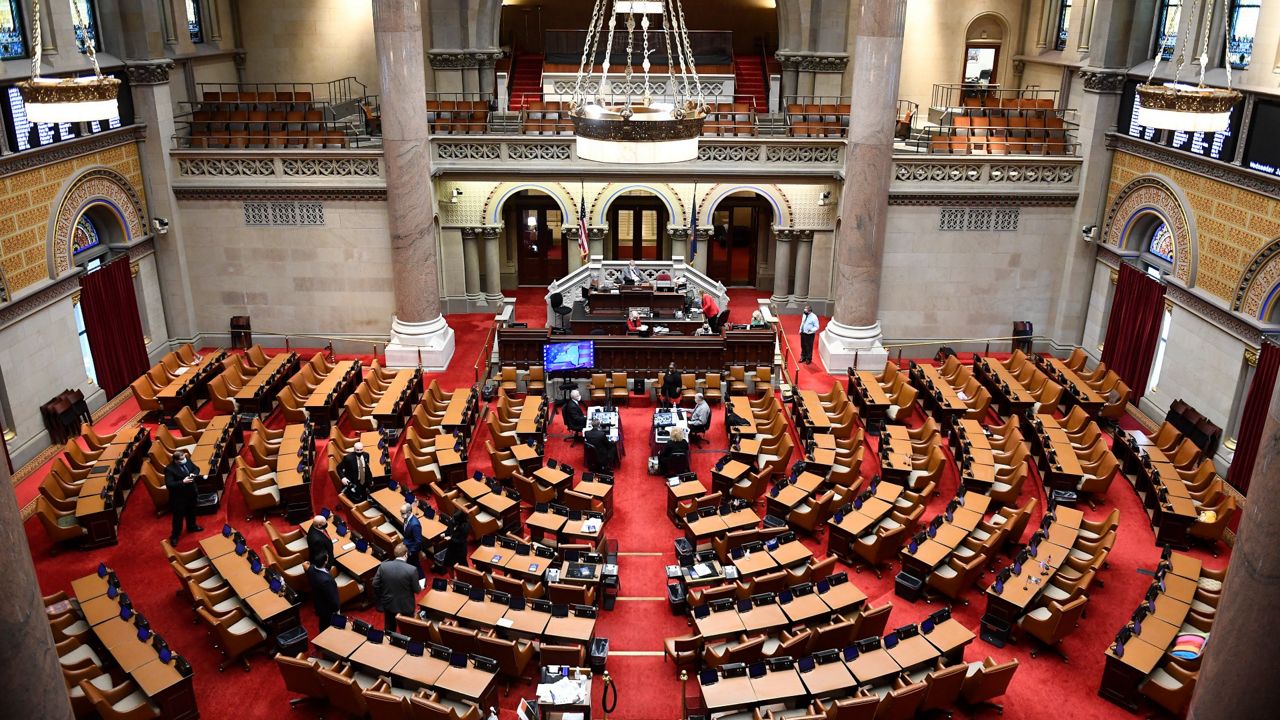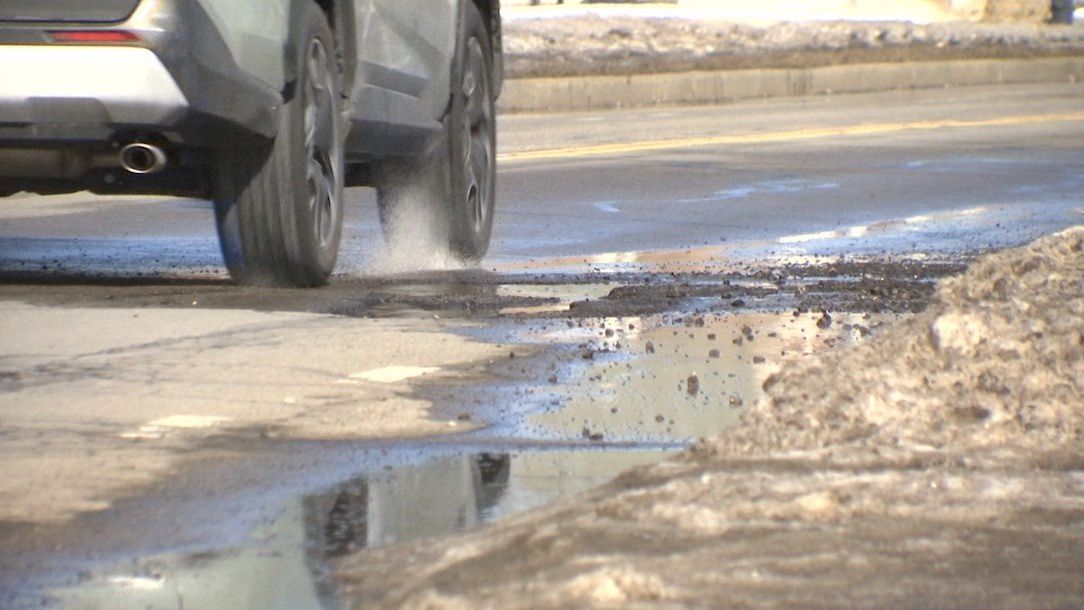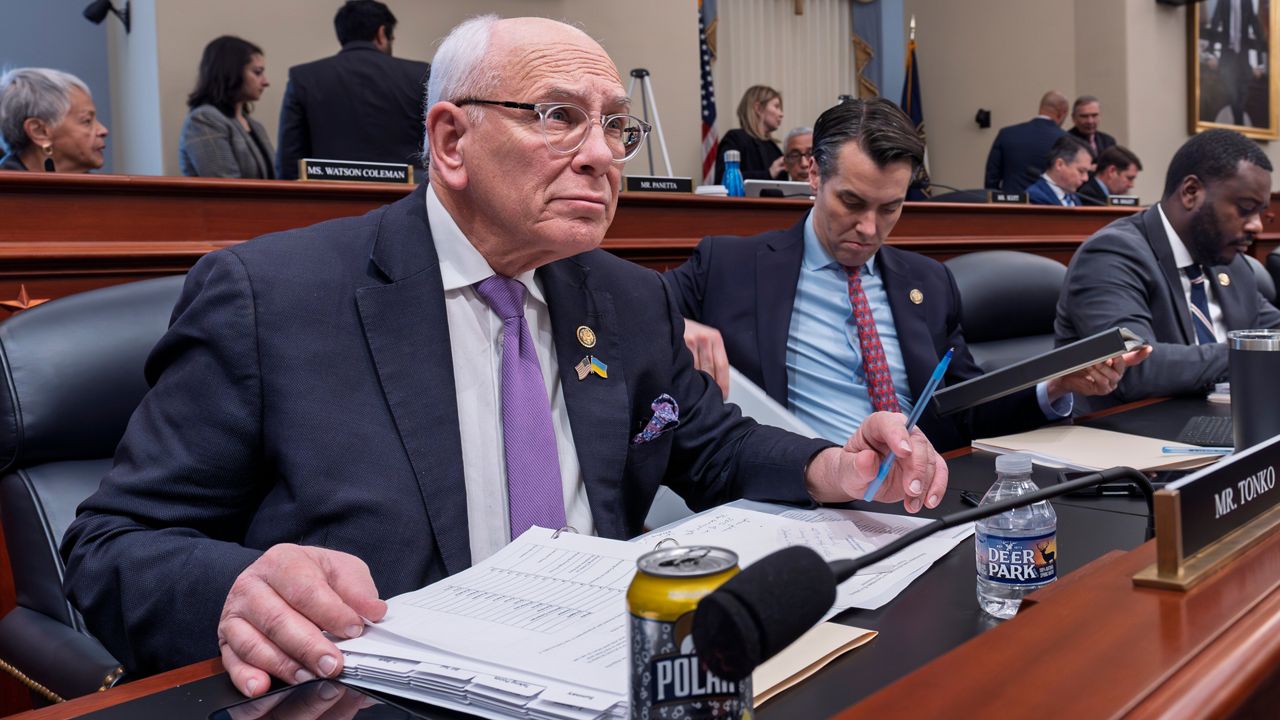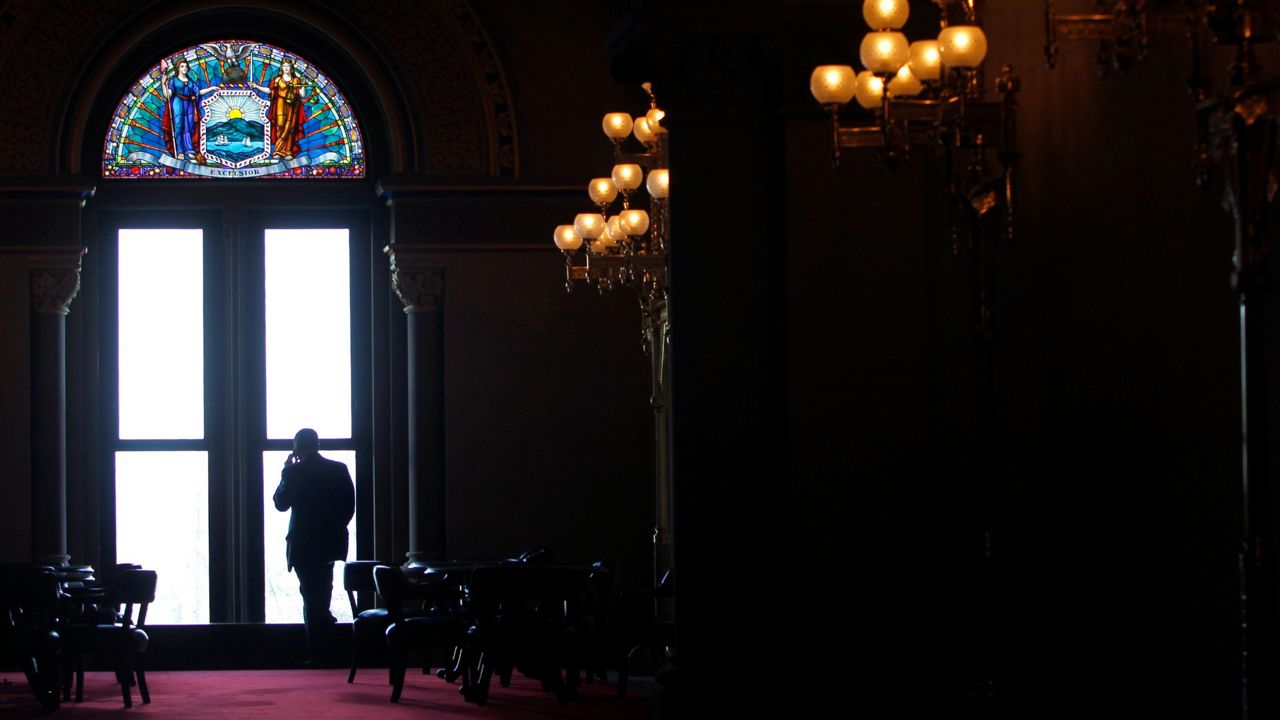Most county leaders across New York say they do not have the capacity to welcome asylum seekers, and are putting the pressure on state and federal officials to stop playing "hot potato" as the consequences of the immigration of thousands of people from the southern border weighs on localities.
Twenty-seven counties, or about half those outside New York City, have issued local orders of emergency banning hotels, motels and other businesses from contracting to take asylum seekers.
"We need to stop the buses rolling outside of New York City," said Stephen Acquario, executive director of the state Association of Counties. "That's the joint goal between the counties and the city of New York."
Acquario has encouraged any upstate county with the resources to help temporarily house the newcomers. He contacts leaders in the 57 counties outside the city each week to check on availability of shelter space and recounted they all have said they do not have capacity among a sustained increase in homelessness and social services for vulnerable populations since the COVID-19 pandemic.
"Upstate New York does not have capacity," Acquario said. "There is no space in our hotels in all of these counties around the state of New York. They're presently being used by their own social services recipients.”
Concerns about transparency and proper vetting of migrants have become more significant after asylum seekers in Erie and Orange counties have been charged with sex crimes and felony assault.
“Who are the folks coming? Their names, their health care records, have they been vaccinated for tuberculosis, varicella or chickenpox? What are their employment skills?” Acquario asked. “This is where the system has collapsed, [and] is a total disconnect between the federal government, the state government, the city of New York and the 57 counties. It's a system in chaos right now.”
Acquario has met with New York City Mayor Eric Adams, but not Gov. Kathy Hochul, about the issue. He also makes weekly contact with state Division of Homeland Security and Emergency Services.
More than 100,000 people from the southern border have arrived in New York in the last year, but new arrivals are coming rapidly, with more than 2,500 people seeking asylum entering the state in the last week. Thousands were left to sleep on city streets as shelters in the five boroughs reached capacity.
Several organizations sent Hochul a letter last week urging her to issue an executive order to bar counties from issuing local emergencies preventing the relocation of migrants to their communities.
Kathryn Kliff, a staff attorney with the Legal Aid Society, says the state needs to take more leadership while officials wait for a federal response, and localities should not impede New York's ability to provide shelter to asylum seekers.
“We're calling on the governor, the state, to really step in and take on a leadership role, because at this point that is what's needed,” she said Monday. “The last thing anyone wants to see is more people sleeping outside on the streets. ...People were literally sleeping with blankets on the floor of church, that's really not who we are as a city or as a state."
Federal officials have refused a request to house thousands of asylum seekers at Floyd Bennett Field. Federal state and city officials also toured Fort Wadsworth on Staten Island to assess its suitability as a sheltering site over the weekend.
Kliff argues local orders have prevented hotels and other businesses that want to house or help migrants, feature xenophobic language and have caused mass confusion and legal pushback by businesses, slowing down the response.
She challenges the truth behind counties’ claims of lacking the capacity to assist.
“There are a number of hotel owners who actually sued because they have hotels they want to use to house migrants,” Kliff said. “…It's really time for the state to step up and help people get connected to those opportunities, help people be safe and help people get what they need.”
Adams said last week the crisis is expected to have a fiscal impact on the city of $12 billion over three years — or at least three times the $1 billion allocated in the last state budget to house migrants.
Adams is unfamiliar with the rest of the state's 57 counties, 62 cities and 932 towns — leaving collaboration to DocGo, a health care consulting company with a multi-million dollar contract with the city to provide temporary housing and security for migrants.
DocGo has frequently entered contractual agreements with hotels, motels and similar shelters in upstate counties without contacting local government officials.
"That's a problem," Acquario said. "We can't have that happening. The governments need to be working together. The state of New York needs to do a better job. The governor, these state agencies they're very familiar with the counties of New York state, so they need to be engaged a little bit more than what they've been doing."
Acquario says DocGo is improving after learning how to work with county governments, but the company needs to provide legal services for asylum seekers.
State leaders have encouraged county officials to put additional pressure on Congress.
Assembly Speaker Carl Heastie continued his calls Monday for the federal government to intervene.
"I think more attention, particularly from the federal government, needs to be here to help not only New York City, of course, but all the counties around the state that are trying to help out," he told reporters at an event in the North Country on Monday.
Counties, meanwhile, want all levels of government to work together. Acquario criticized President Joe Biden’s administration for inadequately vetting and providing information about asylum seekers to the state and New York City.
"The federal government is not doing its job, the White House is not doing its job and getting the information to the states … the county and the city of New York,” he said.
NYSAC supports Hochul's request for the federal government to expedite workforce authorization papers for asylum seekers.
The organization will push for additional funding in the next state budget to assist localities with expenses to house or care for migrants, including support to local school districts. But Acquario says the federal government must provide resources as the state cannot shoulder the burden from its coffers alone.
He also suggested city officials look to border states New Jersey, Massachusetts and Pennsylvania for help.
"The state of New York can't bear the brunt of this national crisis,” Acquario said.




%20Migrant%20Overcrowding%20Roosevelt%20Hotel%20CGPKG_127011620_739_1?wid=320&hei=180&$wide-bg$)




